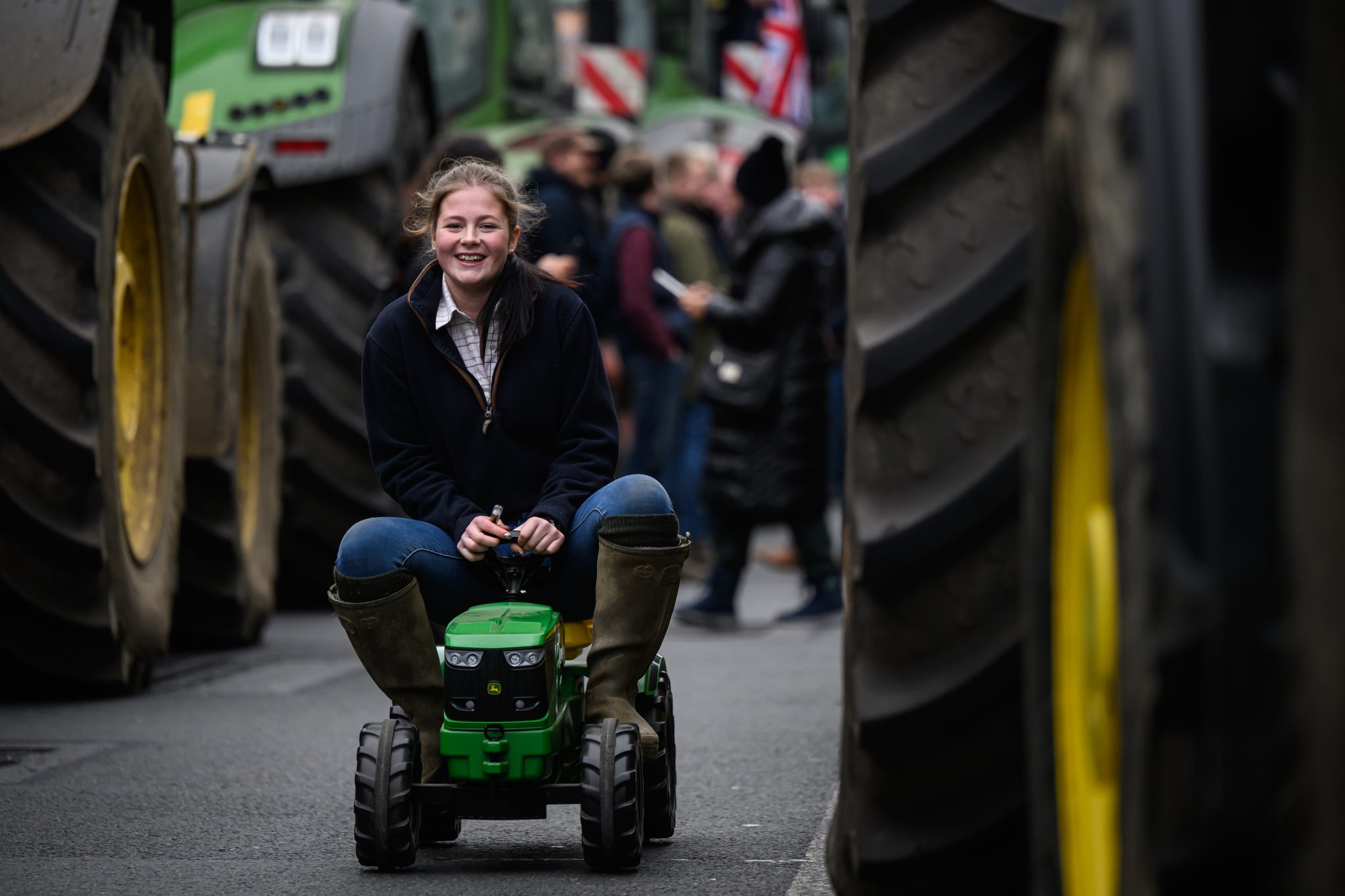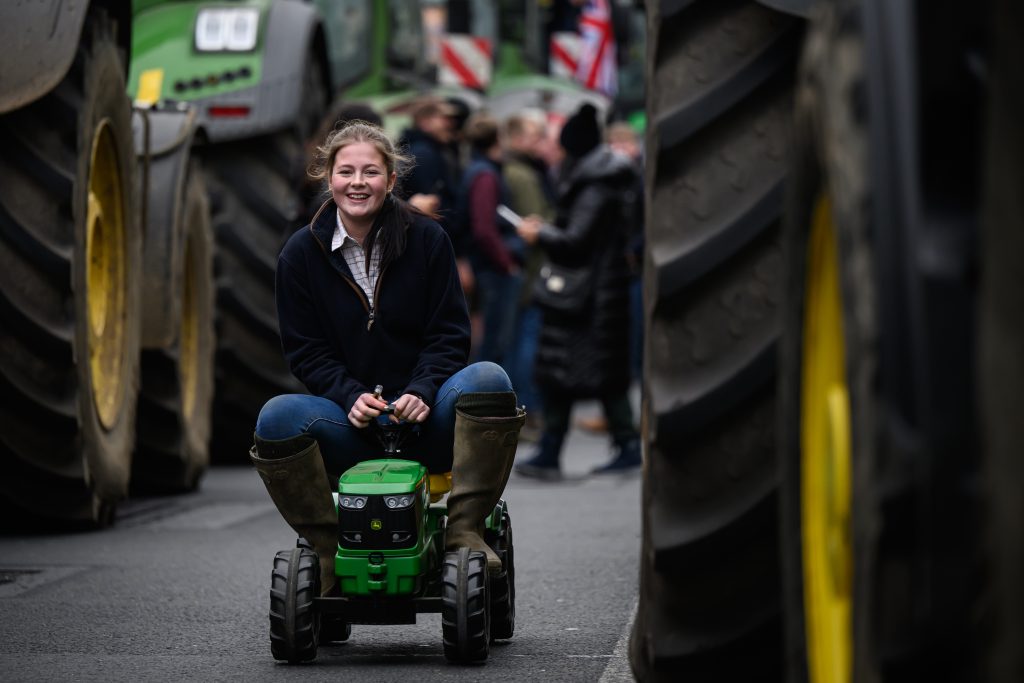Win CENS ProFlex DX5 earplugs worth £1,149 – enter here
Why keepering is a wonderfully rewarding job from beginning to end
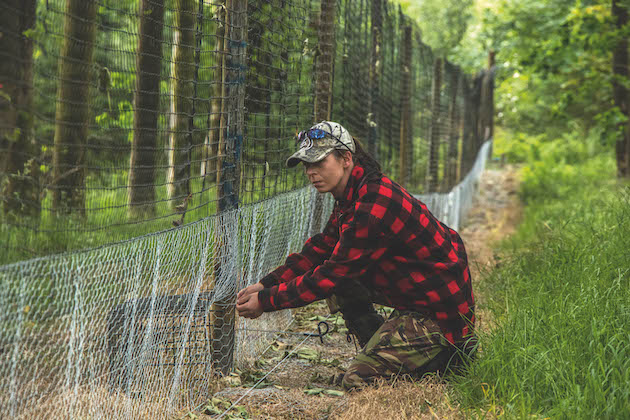 Jude working on building the new pheasant pen
Jude working on building the new pheasant pen
Gamekeeping jobs – tips for finding one
- Network, network, network —if people don’t know you are looking to move, they are not going to let you know what’s coming up.
- Work on your CV — keep it updated and relevant.
- Check job sites daily and apply as soon as you can.
- Do your research before applying — and don’t accept a position if it isn’t what you actually want.
- Take a long-term view, and ask yourself if the job you are thinking of applying for will help get you to where you want to be in five to 10 years’ time.
I vividly remember having a conversation with a retired gamekeeper in the early 1980s, when I was on a Government-sponsored Youth Training Scheme, about gamekeeping and its future. He was pretty adamant that things had changed for the worse, that there was little or no future in gamekeeping, and I would have been better choosing a different career.
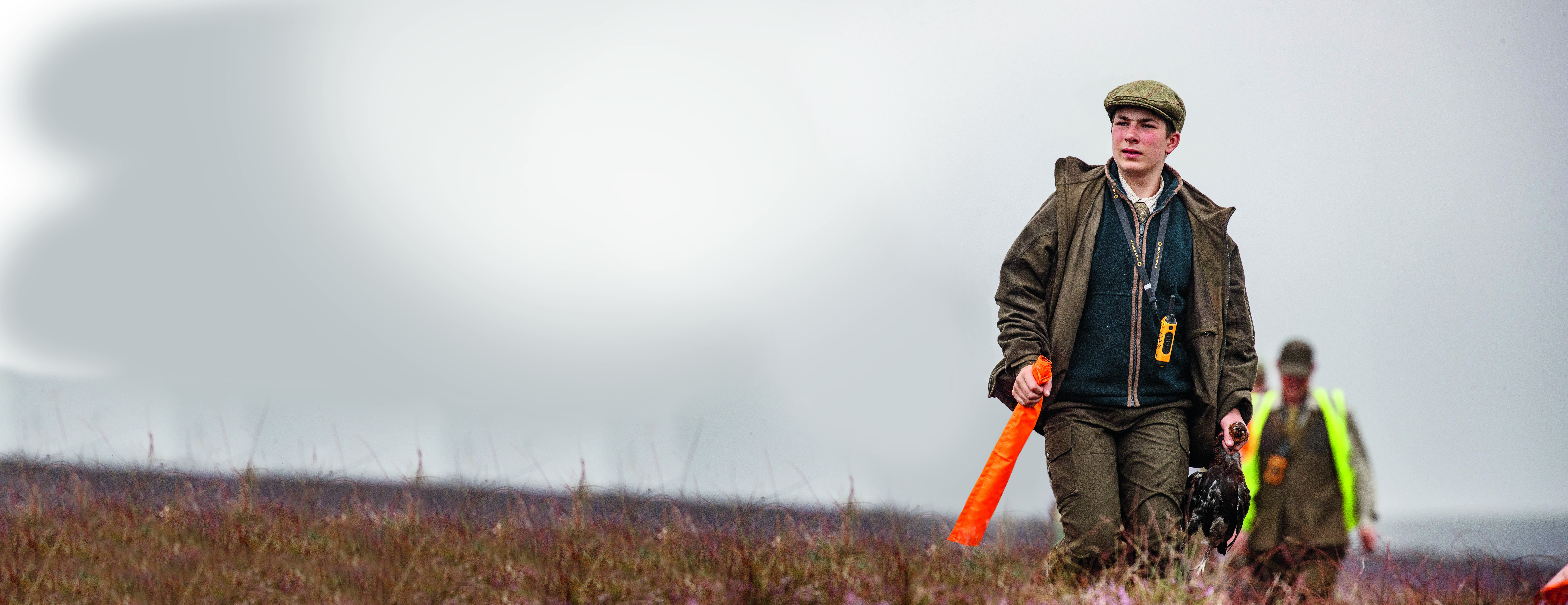
Young gamekeeper
By contrast, 12 months later when I was offered and accepted my first full-time position as an underkeeper in west Wales, my then headkeeper was pretty upbeat. While he missed the old ways and the old days, he understood change and accepted it. Furthermore, he had been born within sight of the Monmouthshire Hunt kennels and had always wanted to go into hunt service, but his father forbade him as he said there was no future in it. Inevitable his point, which is as true today as it was then, was that change was inevitable, that we should accept it and adapt, and above all else do something we are passionate about and enjoy. That’s not to say he didn’t like being a gamekeeper, it is just that he would have preferred to have hunted a pack of hounds. I am often asked what I would consider the perfect gamekeeping job and have to confess that I sometimes struggle to come up with an answer. This is because keepering is so varied, and what is a fantastic opportunity for one person doesn’t always suit another. It is, of course, very much down to individual taste.
All I can say by way of advice to those who are starting their careers is to focus on what you want when you have decided what it is you are actually looking for. Keep working and giving your current job your all, then when that job of a lifetime does come up you will have both a proven track record and a first-rate reputation among your peers.
If I had to draw up a list I would put working for the landowner at the top, with working for a long-term — say 25 to 30 years — lease-holder a close second. The person who owns the ground has a long-term vested interest in the reputation of a shoot and usually a far closer connection to the estate staff and tenants. They are usually more understanding of poor drives, the vagaries of the British weather and fully understand the effects cropping and forestry work can play in making or breaking a season.
Whether it’s pheasants, partridges or grouse, it will bring a feeling of accomplishment
Training for gamekeeping jobs
Forward-thinking employers invest in their staff and are happy to pay for and provide additional training in gamekeeping jobs. Take what is offered and add it to your CV. Anything that makes you stand out from the crowd is useful and you never know where it might lead.
A hundred acres of greening crop planted next to, or between drives, may well hold more birds than the drive itself. A heavy thinning of a wood will alter roosting sites and possibly shoot-day flight patterns, but the employer will understand it because it is nothing new. Crop patterns change, woods alter, and they will have seen it all before and know it is cyclical and simply one of the challenges of running a shoot.
This isn’t to say they don’t expect results — of course they do, it is just that they tend to have a longer-term view of things.
The right position will come if you keep looking
Decent accommodation is a must. I still hear of far too many houses with leaking roofs or rotten windows. Other no-nos are yards that turn to mud in the winter, mud that carries into the house and annoys the keeper’s partner and covers the children, and drives that knacker shock absorbers on a daily basis.
In keepering, perhaps more than any other job, the adage of ‘happy wife, happy life’ has never been more true. And I respectfully use the saying when, as we all know, there are lots of female keepers whose partners quite rightly expect the same.
For some who run a shoot, it’s all about producing high birds
Wages and perks
Being paid a decent, liveable wage is very much a part of what makes some jobs better than others as well. It is a typically British thing to avoid conversations about wages and perks when applying for a job and simply to accept what you are given, but rent-free cottages — upon retirement — are almost a thing of the past.
A decent wage that allows you to put something by for when you retire, or even enough to save a deposit on a buy-to-let house for you to move into when you retire, makes things a lot easier. The same applies to a decent works pension.
There is no particular part of the country that is better than any other as far as jobs go. Some regions are known for showing high birds, others for wild birds and you will need probably to work in northern England or Scotland if you want to work with grouse on a moor. But there are hidden gems everywhere and it is very often these quiet, relatively unheard of traditional estates that offer some of the most interesting and rewarding jobs.
I think a certain amount of seclusion and relatively few people are bonuses; seclusion, of course, being very different from isolation. Seclusion usually brings peace; true isolation can be very hard.
I have so many friends whose otherwise seemingly perfect jobs are ruined by repeated vandalism, theft, poaching, threats and intimidation and the dumping of rubbish. All of them are caused by either the sheer number of people who live nearby, or the number of visitors their estates have on weekends and holidays, who ironically visit it because it is so peaceful and unspoilt.
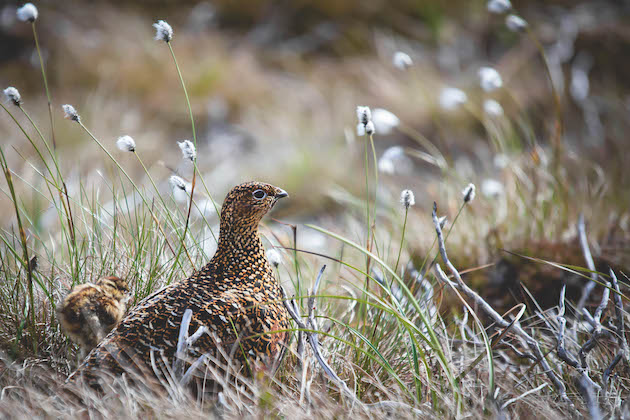
Female Red Grouse (lagopus lagopus scotica)
Achievement
The size of the shoot doesn’t matter; 2,000 acres of open hill is relatively small whereas 2,000 acres of mixed woodland and farmland — while the same size — is a fair lump of ground and enough to keep anyone busy. Importantly, running a shoot or working for an estate needs to give you some sense of achievement. Only you will know what gives you that buzz.
For some, it is producing high birds. Driving birds they have reared themselves out of woods they manage, or cover crops they have sited and planted, and seeing them turn on the wind and climb ever higher, beating the Guns in the valley down below.
For others it is nurturing wild game, in the hope that you can produce a shootable surplus, and accepting poor years and years of no shooting at all as part of it. Then there is sympathetically managing the ground to improve nesting and brood-rearing habitat, the provision of food, more focus on predation control and the added benefits of seeing their bird counts rise. This is something moorland keepers do day in, day out, and have done for ever. If that feeling of accomplishment is missing, or a shoot that ticks all the other boxes doesn’t give you a buzz, it is difficult to give it your best and stay focused.
Jobs change with time, as does what we want to do as individuals. Gamekeepers go through stages, much like the more well-known stages of a fisherman’s life; any fish, lots of fish, big fish, hardest fish, just want to be out fishing.
Younger keepers — including me when I first started — simply want to look after pheasants or partridges, or grouse. As they get older they want to be the best at everything and in most cases that means bigger estates, more birds and added responsibilities. Many of them then change to wanting to produce and present the best birds there are, followed by wanting to present the most difficult or wildest.
Eventually — or so I am told because I am not actually there yet — they only want to be out doing their jobs, enjoying life and passing on what they have learned.
I think producing wild game and hosting smaller days will become more popular. Quality over quantity perhaps? Any move away from big bag days will most probably be led by many of the more forward-thinking estates, which ironically will have shot some of the biggest bags in the past.
Things tend to go in big circles, and we have been here before. Big bags, syndicate days, smaller bags, wild days. And we could go the same way again. The good thing is that whatever the days, people will still need and want to employ gamekeepers. Contrary to what my old headkeeper’s father may have thought, it is a great job, with a bright future.
Related Articles
Get the latest news delivered direct to your door
Subscribe to Shooting Times & Country
Discover the ultimate companion for field sports enthusiasts with Shooting Times & Country Magazine, the UK’s leading weekly publication that has been at the forefront of shooting culture since 1882. Subscribers gain access to expert tips, comprehensive gear reviews, seasonal advice and a vibrant community of like-minded shooters.
Save on shop price when you subscribe with weekly issues featuring in-depth articles on gundog training, exclusive member offers and access to the digital back issue library. A Shooting Times & Country subscription is more than a magazine, don’t just read about the countryside; immerse yourself in its most authoritative and engaging publication.




